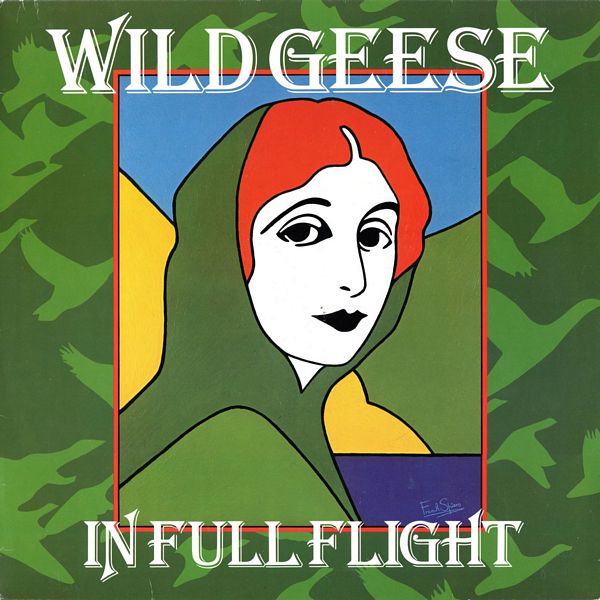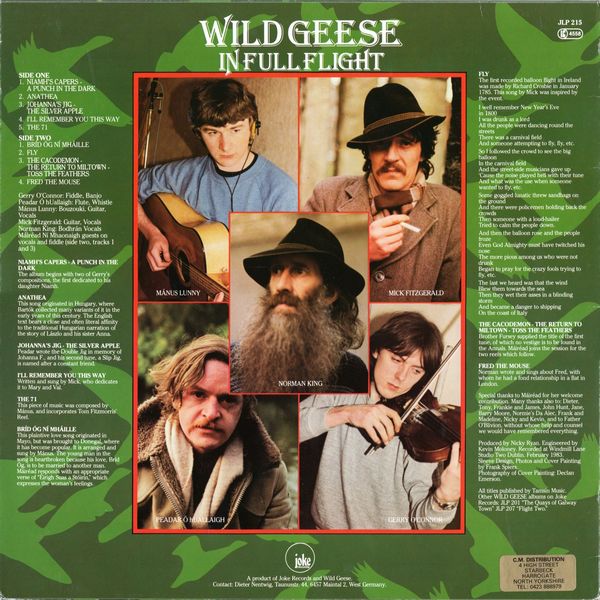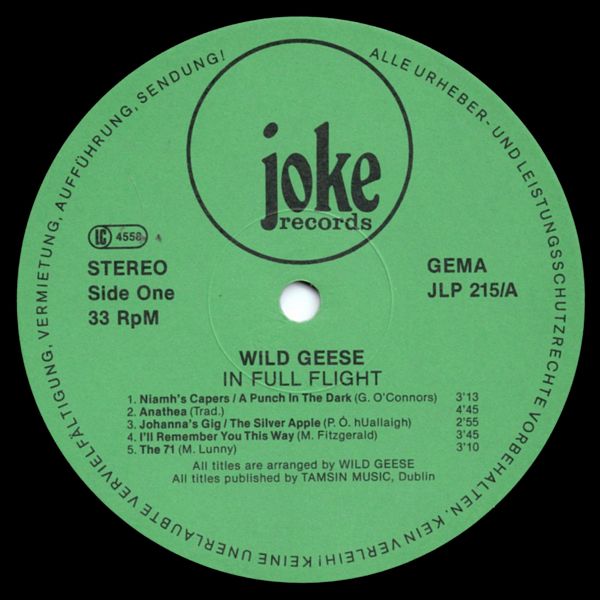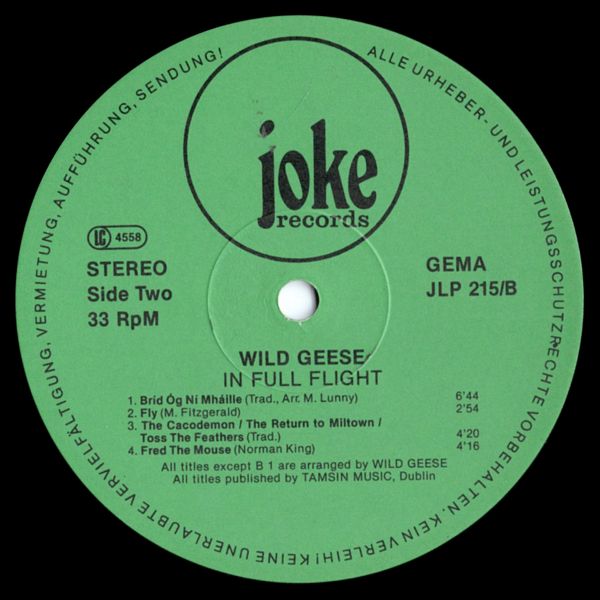
 |



|
Sleeve Notes
NIAMH'S CAPERS — A PUNCH IN THE DARK — The album begins with two of Gerry's compositions, the first dedicated to his daughter Niamh.
ANATHEA — This song originated in Hungary, where Bartók collected many variants of it in the early years of this century. The English text bears a close and often literal affinity to the traditional Hungarian narration of the story of Lászlo and his sister Anna.
JOHANNA'S JIG — THE SILVER APPLE — Peadar wrote the Double Jig in memory of Johanna F., and his second tune, a Slip Jig, is named after a constant friend.
I'LL REMEMBER YOU THIS WAY — Written and sung by Mick, who dedicates it to Mary and Val.
THE 71 — This piece of music was composed by Manus, and incorporates Tom Fitzmorris' Reel.
BRíD ÓG Ní MHÁILLE — This plaintive love song originated in Mayo, but was brought to Donegal, where it has become popular. It is arranged and sung by Manus. The young man in the song is heartbroken because his love, Bríd Óg, is to be married to another man. Máiréad responds with an appropriate verse of "Éirigh Suas a Stóirín," which expresses the woman's feelings.
FLY — The first recorded balloon flight in Ireland was made by Richard Crosbie in January 1785. This song by Mick was inspired by the event.
I well remember New Year's Eve in 1800
I was drunk as a lord
All the people were dancing round the streets
There was a carnival field
And someone attempting to fly, fly, etc.
So I followed the crowd to see the big balloon
In the carnival field
And the street-side musicians gave up
'Cause the noise played hell with their tune
And what was the use when someone wanted to fly, etc.
Some goggled lunatic threw sandbags on the ground
And there were policemen holding back crowds
Then someone with a loud-hailer
Tried to calm the people down.
And then the balloon rose and the people froze
Even God Almighty must have twitched his nose
The more pious among us who were not drunk
Began to pray for the crazy fools trying to fly, etc.
The last we heard was that the wind
Blew them towards the sea
Then they wet their asses in a blinding storm
And became a danger to shipping
On the coast of Italy
THE CACODEMON — THE RETURN TO MILTOWN — TOSS THE FEATHERS — Brother Fursey supplied the title of the first tune, of which no vestige is to be found in the Annals. Mairead joins the session for the two reels which follow.
FRED THE MOUSE — Norman wrote and sings about Fred, with whom he had a fond relationship in a flat in London.
Special thanks to Mairéad for her welcome contribution. Many thanks also to: Dieter, Tony, Frankie and James, John Hunt, Jane, Barry Moore, Normie's Da Alec, Frank and Madeline, Nicky and Kevin, and to Father O'Blivion, without whose help and counsel we would have remembered everything.